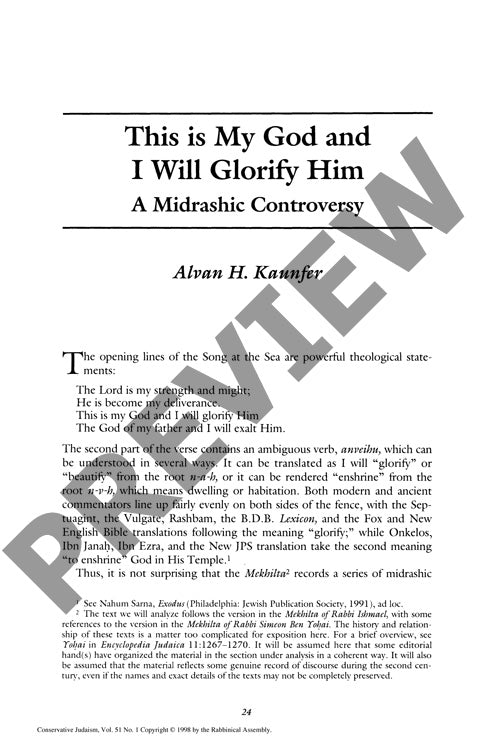This Is My God and I Will Glorify Him A
Couldn't load pickup availability
How can humans glorify God without a Temple? This question animated fierce rabbinic debates over the Hebrew term "anveihu" in Exodus's Song at the Sea, where interpretations as both "glorify" and "enshrine" opened diverse theological possibilities. Close textual analysis of the Mekhilta reveals how prominent tannaitic rabbis systematically explored spiritual alternatives following the Temple's destruction in 70 C.E. Through multi-level midrashic analysis, a carefully constructed progression emerges: from Rabbi Ishmael's focus on individual ritual observance to Abba Saul's interpersonal ethics, Rabbi Yose's communal worship, Rabbi Akiba's international witness, and finally the Sages' vision of messianic restoration. While their philological dispute appears linguistic on the surface, it masks a profound theological exploration of divine glorification in a post-Temple world. Their ancient discourse continues to offer relevant frameworks for contemporary Jewish spirituality, suggesting multiple valid approaches across personal, interpersonal, communal, universal, and eschatological dimensions.

More Information
-
Physical Description
-
Publication Information
Published
ISBN
-
Publication Credits
Alvan Kaunfer

